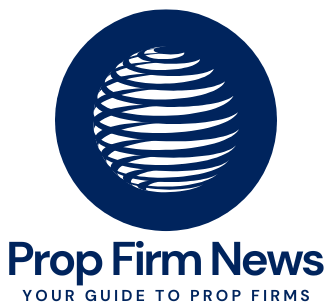Proprietary trading firms operate in a complex global financial landscape, subject to varying regulations depending on their location and the markets they serve. Understanding these regulatory considerations is essential for traders and firms to ensure compliance and avoid legal pitfalls. In this comprehensive guide, we’ll explore the regulatory landscape for prop firms, key jurisdictions, and how regulations impact traders.
The Regulatory Landscape for Prop Firms
Prop firms differ from traditional brokers because they trade with their own capital, not client funds. This distinction affects their regulatory requirements, which vary by jurisdiction. Regulations aim to protect traders, ensure fair practices, and maintain market integrity. However, the decentralized nature of prop trading—often operating online across multiple countries—creates a complex regulatory environment.
Key Regulatory Considerations
1. Licensing and Registration
Prop firms may need licenses depending on their activities and jurisdiction:
- United States: Prop firms are subject to oversight by the SEC (Securities and Exchange Commission) or CFTC(Commodity Futures Trading Commission) if trading securities or futures. Some firms operate as unregistered entities, relying on exemptions for proprietary trading. Learn about SEC regulations.
- Europe: Firms in the EU must comply with MiFID II (Markets in Financial Instruments Directive), which governs financial services. Explore MiFID II.
- Other Jurisdictions: Countries like Australia (ASIC) and the UK (FCA) have their own regulatory frameworks. Offshore firms in places like the Seychelles may face lighter regulation.
2. Trader Protections
Regulations often focus on protecting traders from unfair practices:
- Transparency: Firms must disclose evaluation fees, profit splits, and risk rules.
- Fund Security: While prop firms don’t hold client funds, they must ensure payout reliability.
- Dispute Resolution: Some jurisdictions require mechanisms for resolving trader disputes.
3. Tax Compliance
Traders are responsible for reporting earnings, and prop firms must comply with tax laws in their jurisdictions. For example, US traders may need to report profits as self-employment income. Learn about trading taxes.
4. Anti-Money Laundering (AML) and KYC
Prop firms must implement AML and Know Your Customer (KYC) procedures to verify trader identities and prevent illegal activities. This includes collecting IDs and proof of address during onboarding.
Regulatory Challenges for Prop Firms
- Global Operations: Firms serving international traders must navigate multiple regulatory regimes.
- Offshore Firms: Many prop firms operate in jurisdictions like the Seychelles or St. Vincent to minimize regulation, raising concerns about legitimacy.
- Trader Awareness: Traders must understand the regulatory status of their chosen firm to avoid scams.
How Regulations Impact Traders
- Access to Firms: Strict regulations may limit the availability of prop firms in certain countries.
- Costs: Compliance with regulations can increase firm operating costs, potentially passed on to traders via fees.
- Payout Reliability: Regulated firms are more likely to honor payouts but may have slower processes due to compliance checks.
Tips for Navigating Prop Firm Regulations
- Research Firm Licensing: Choose firms regulated by reputable bodies like the SEC, FCA, or ASIC.
- Check Jurisdiction: Understand the regulatory environment of the firm’s home country.
- Review Terms: Ensure the firm’s terms and conditions are transparent and compliant.
- Consult Professionals: Seek tax or legal advice to understand your obligations. Find tax resources.
- Avoid Unregulated Firms: Be cautious of firms in offshore jurisdictions with no oversight.
Top Regulated Prop Firms
- FTMO: Based in the Czech Republic, complies with EU regulations. Visit FTMO.
- The Funded Trader: Operates under US and international compliance standards. Explore here.
- SurgeTrader: US-based with transparent regulatory practices. Check it out.
- My Forex Funds: Registered in Canada with KYC/AML compliance. Learn more.
Conclusion
Navigating the regulatory landscape is critical for both prop firms and traders. By choosing regulated firms, understanding jurisdictional requirements, and staying compliant with tax and AML rules, traders can protect themselves and focus on trading. Research reputable firms, verify their regulatory status, and ensure their practices align with your goals. With the right knowledge, you can trade confidently in the regulated world of prop trading!
